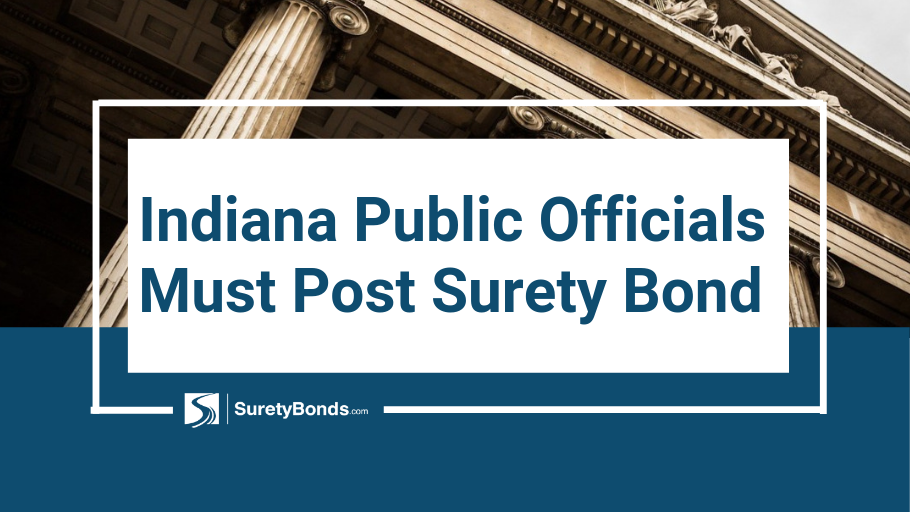Indiana public officials must adhere to new surety bond requirements set forth in Senate Bill 393. Section 2 of SB 393 modifies Section 5-4-1-18 of the Indiana Code and adds additional individuals who must be bonded. Section 3 of the bill modifies IC 20-26-4-5 and requires surety bonds for public school officials. Both sections of the bill become effective on January 1, 2016.
Section 2 of the bill adds individuals who are employees of a city, town, county or township and those whose duties include access to any funds that belong to the federal government, state, political subdivision or other government entity to the list of Indiana public officials who must be covered by a surety bond. The amount of the bond depends on the type of government employees that it will cover. Subsections (d) through (m) of SB 393, Section 2 specify bonding requirements for each type of employee, including coverage amount and bond term. It also allows the city, town or township’s fiscal body to approve the purchase of crime insurance covering any criminal acts committed by persons acting on behalf of the local government.
Section 3 of SB 393 requires that any individual handling funds that belong to the school corporation (as defined in IC 20-26-2-4) must be covered under a surety bond. School treasurers and deputy treasurers must also be bonded. The school’s governing body can choose to purchase a blanket bond with sufficient coverage for all required individuals. The bonds guarantee employees’ faithful performance of their duties.
Section 1 of the bill that became effective July 1, 2015 added contractors to the list of persons who must purchase a bond. It also added that bonds must be submitted to the fiscal officer of the political subdivision (municipal corporation or special taxing district) in addition to the office of the county recorder in the individual’s county of residence. The section continues on to require the fiscal officer to file the bond with the state board of accounts. The state board of accounts must then maintain a public online database of individuals required to file a bond under the section and whether or not the individuals have filed.
SB 393 was introduced by the Indiana Public Integrity Coalition, which was created by Attorney General Greg Zoeller in an effort to combat corruption in local and state government. SuretyBonds.com can help answer your questions about getting bonded in Indiana.
